The 7th Pakistan Afghanistan Joint Committee (PAJC) meeting was held from December 21-24, 2020, in Islamabad, spearheaded by Center for Research and Security Studies (CRSS) and Organization for Economic Studies and Peace (OESP). During the meeting, wide ranging issues encompassing bilateral relations, people to people connectivity, building peace and promoting cooperation, between the two countries, were discussed. Overall, since October 2015 when this Track II initiative started, in total eighteen meetings (in both countries) have been held so far; 12 meetings were held in phases 1 & 2, while 6 meetings were held in phase 3.
A high level 15-member delegation, headed by Member of Afghan Parliament, Shinkai Karokhail, arrived in Islamabad on December 21, 2020 to discuss issues of bilateral interests with the Pakistani delegation in a bid to devise recommendations to present to both governments. The other members of the Afghan delegation included: Gul Ahmed Kamin, Member Afghan Parliament; Fatima Kohestani, Member Afghan Parliament; Gulalai Mohammadi, Member Afghan Parliament; Farzana Kochai, Member Afghan Parliament; Palwasha Hassan, Women Right Activist; Momina Yari, Social Activist and Former Commissioner EC; Mozamil Shinwari, Former Deputy Economic and Trade Minister, Afghanistan; Khan Jan Alokozai, Former Governor, Board Member of ACCI; Aziz Ullah Amin, Political Analyst Afghanistan; Waris Hasrat, Senior Anchor Person, ATNN; Mari Akrami, Human Right Activist; Mir Wais Wardak, Political Analyst, Researcher; Naqib Ullah Safi, Executive Director, PAJCCI and Abdul Rehman, Project Coordinator, OESP.
Whereas the Pakistani high level 17-member delegation was headed by Dr. Shoaib Suddle, Former IG Police and Federal Tax Ombudsman, other members included: Mehnaz Akber Aziz, Member of National Assembly PML-N, Shandana Gulzar, Member of National Assembly PTI; Lt. Gen. (Retd) Asif Yasin, Former Defense Secretary; Haroon Sharif, Former Minister of State and former Chairman Board of Investment (BOI) Pakistan; Seema Ilahi Baloch, Former Ambassador; Asif Durrani, Former Ambassador; Mian Sanaullah, Former Ambassador; Ayaz Wazir, Former Ambassador; Qazi Humayun, Former Ambassador; Tasnim Aslam, Former Ambassador; Rehman Azhar, Senior journalist- Express TV; Tahir Khan, Senior journalist GTV News; Nasim Zehra, Senior Journalist, regional analyst and writer; Ammara Durrani, Public Policy and Human Security Expert; Ahmed Sidiqi, Pak-Afghan Research fellow and policy expert and Hasan Khan, senior journalist and TV anchor at AVT Khyber.
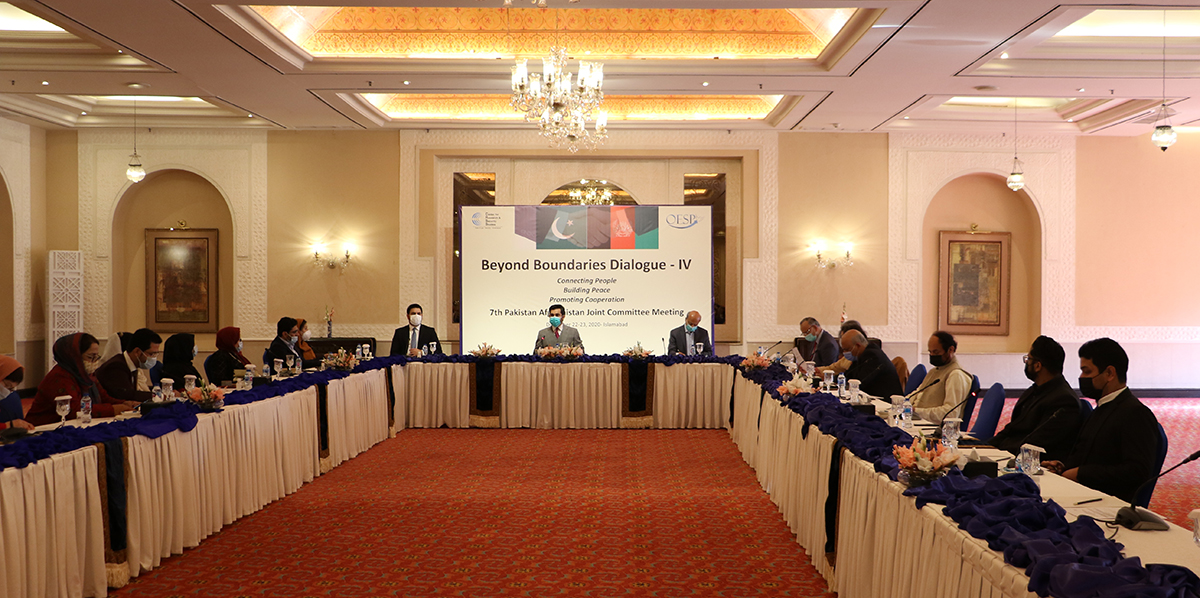
The visit started with a dinner hosted by CRSS for the Afghan and Pakistan delegations at Serena Hotel on December 21, 2020.
On December 22, 2020, during the first session, from 10 am to 12:30 pm, Director Programs CRSS Zeeshan Salahuddin, presented a detail analysis on the current regional developments and future strategies. The presentation was followed up by the interactive discussions with a review of previous recommendations and update on progress against these recommendations.
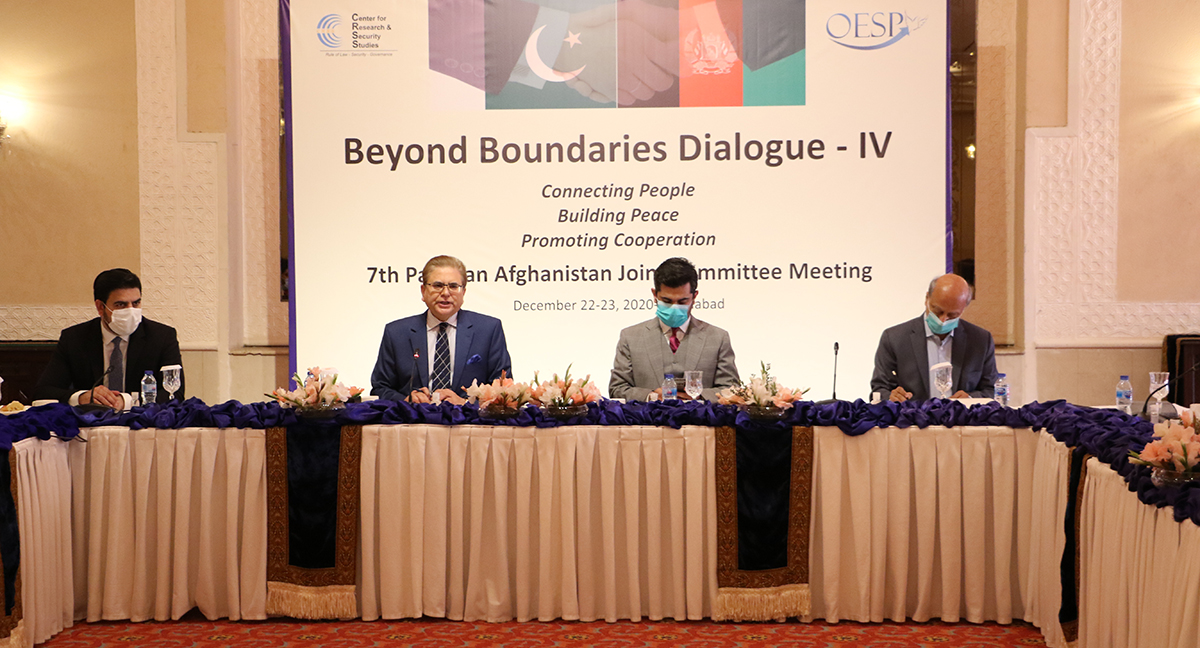
The PAJC members whilst discussing the progress on previous recommendations updated that since last PAJC meeting, the Pakistan Government has achieved remarkable milestones in attaining a vigorous relation with Afghanistan despite the COVID-19 pandemic which struck globally and affected adversely. Pakistan has made significant policy changes since the last meeting especially in trade, visa regime and youth scholarships. These avenues were specifically raised in the previous dialogue and recommendations were suggested for them.
The PAJC member emphasized that one of the crucial developments since the last meeting was the appointment of Ambassador Sadiq as Pakistan’s Special Representative for Afghanistan. Ambassador Sadiq has remained a core PAJC member since 2017. Therefore, he is well aware of all the issues and the recommendations emanated from previous dialogues which assisted him along with other legislators in devising these policies. He has also reached out to CRSS and other PAJC members several times during the last year for technical assistance.
Moreover, the other PAJC members also continued to lobby for previous recommendations through sideline meetings, media interactions and Op-eds. They also acknowledged the role of CRSS in disseminating these recommendations continuously to the relevant policymakers and advocating for various key issues through the media. However, the members suggested that whilst there was a substantial focus on some recommendations, there were no concrete developments on recommendations regarding media and cultural exchanges. These avenues will assist in strengthening the relations and must be focused on in the future.
The second session of the meeting started with an interactive session between Ambassador Muhammad Sadiq, Prime Minister’s Special Representative for Afghanistan – who was the chair of the session – and the members of Pakistan Afghanistan Joint Committee (PAJC). Expressing her views in the session, former Ambassador Tasneem Aslam said that the PAJC, along with other challenging issues, must also discuss possibilities regarding youth and artists’ exchange across the border, which would act as soft diplomacy.
The delegate Naseem Zehra stated that the Afghan delegates should apprise them of the youth and media exchanges, so that work on relevant specific agenda items can be done. Former Ambassador Ayaz Wazir remarked at the occasion that both Pakistan and Afghanistan let each other know what they could do for both countries and how they envision future bilateral relations between them. He was also of the view that there should be engagements with all factions within Afghanistan, so that each group can bring forth its own opinions and play its part.
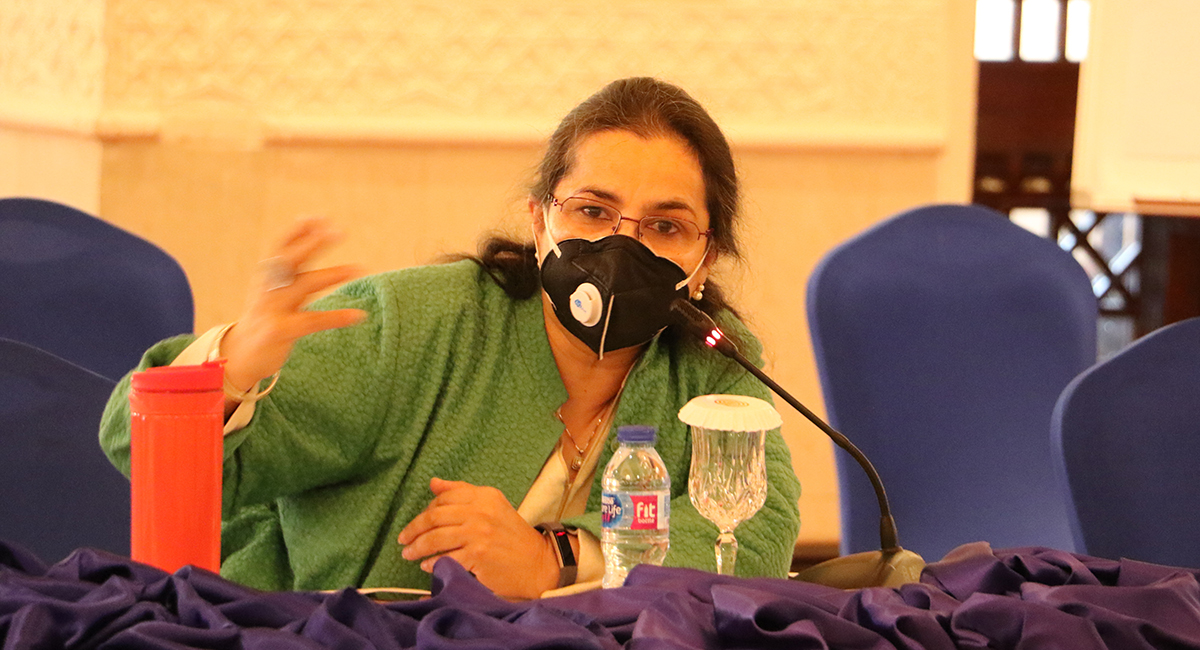
Social Activist and Former Commissioner Momina Yari expressed her views that Afghanistan expects more from Islamabad regarding assistance in reduction of violence. Cease-fire is at the top of Afghan Government’s agenda, but it is the last thing on the Taliban’s agenda. She reiterated the need for Pakistan’s support in facilitating Afghanistan in this regard. Furthermore, she requested the Pakistan Government to advocate for the rights of women and youth whilst engaging with Taliban through talks. Ms. Shinkai Karokhail, in her inaugural address requested the Pakistan Government to facilitate the Afghan refugees in opening their bank accounts as it would promote legitimate banking channel transactions. Furthermore, she requested Ambassador Sadiq to ensure maximum transparency and accountability mechanisms in the entire scholarship process for the Afghan students in Kabul. This in turn will ensure selection on merit, in addition to putting the onus on students for maintaining good academic performance during the scholarship period.
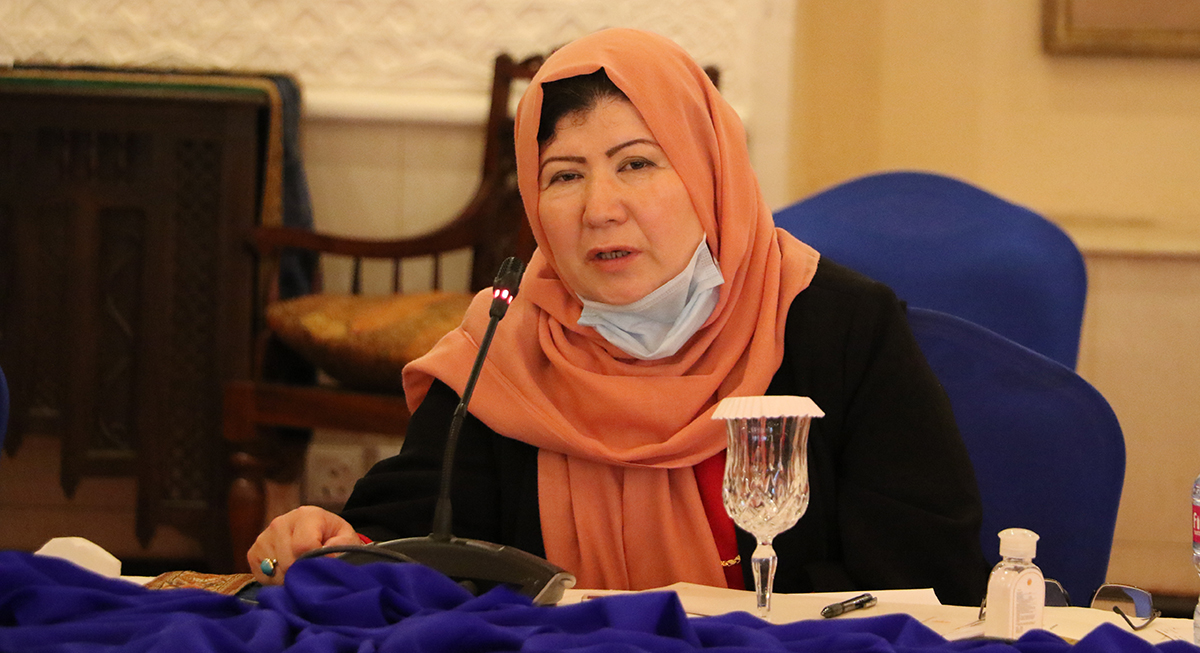
Former Governor, Khan Jan Alkozai, highlighted the positive role played by CRSS by providing a constructive platform for such beneficial engagements. He also mentioned that a few weeks ago, the issues presented before Ambassador Mohammed Sadiq at the CRSS-led Focus Group Discussion (FGD) related to demurrage and detentions, cumbersome and slow scanning process at the Karachi port and 100% physical examination of the Afghan transit cargo have been largely addressed. Mr. Alkozai also said that the government of Pakistan is expediting the process for resolving both bilateral and transit trade issues.
Pak-Afghan Research Fellow and Policy Expert, Ahmed Siddiqi, asked Ambassador Sadiq if any mechanism for formalized intelligence sharing exists between both countries and what initiatives the Pakistan Government is taking for the honorable return of the Afghan refugees. Ambassador Sadiq responded that although APAPPS (Afghanistan-Pakistan Action Plan for Peace and Solidarity) is in place, but it is a gradual process and the meetings held under it face delays due to structural issues. After the Prime Minister Imran Khan’s recent visit to Afghanistan, two new groups have been established – one is a security group, and the other is on the peace talks. The purpose of these groups, which is of a fairly high level, is to expedite the resolution of issues on a fast pace. As far as the Afghan refugees are concerned, the Ambassador expressed the complicated nature of the issue, which needs to be approached with different perspectives.
At the end of the interactive session, Ambassador Sadiq remarked that engaging with Taliban and criticizing Islamabad cannot go hand in hand, so we need to put things in context. He further stipulated that fighting is easy, but peace is difficult. Islamabad is all in to facilitate the cease-fire though it should be kept in mind that reduction in violence would be in a gradual and structural manner and it cannot be done overnight.
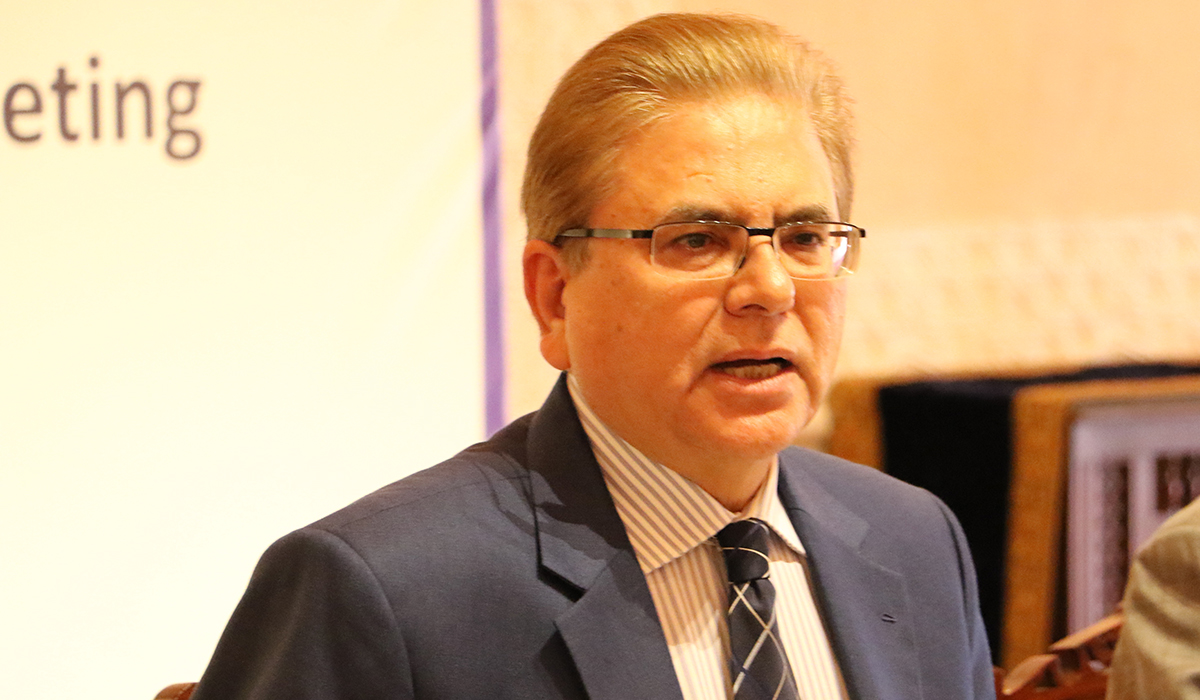
The Ambassador reiterated the need to work on Pak-Afghan women leaders for peace. Women should come forward to voice their concerns within the framework of the Afghan peace process. He also emphasized that our focus is to facilitate Pak-Afghan bilateral relations. Although in contemporary times, governments alone cannot deal with all the matters pertaining the international relations and, in this regard, the role of the private sector is all the more important, which has to be engaged to facilitate such efforts.
Ambassador Muhammad Sadiq also stated that Pakistan-Afghanistan bilateral relations are on the positive trajectory. The Ambassador said that the significant progress in the last few months, particularly, the active role played by the parliaments of both sides in addressing the issues of mutual interest, is remarkable. Still, there is a lot to be done as the complex issues accumulating over years, would take some time for resolution, the ambassador said.
Ambassador Sadiq emphasized that trade is and should always be the connecting link between the two nations. Trade promotes people to people contacts, along with a lot of economic opportunities for the people, particularly the ones residing in border areas. He explained numerous steps the Government of Pakistan has taken in mending trust deficit and starting a new chapter in the bilateral relationship with Afghanistan. These include the introduction of liberal and friendly visa regime for Afghanistan, making it easy for Afghans to do business and open bank accounts inside Pakistan, decision to open 12 border markets with Afghanistan, and pipeline projects like tele-medical centers in Afghanistan and railway link between the countries.
Later in the afternoon during the third session, PAJC members called on Dr. Moeed Yusuf, SAPM on National Security and Strategic Policy Planning. He was of the view that the Track II process, instead of running parallel to Track I, should in fact complement Track I and assist it by providing the government with targeted policy proposals. He thanked the efforts of CRSS in this regard. He then apprised the Afghan participants that today’s Pakistan is a new Pakistan; a lot has changed over last two decades. Pakistan has a new security paradigm now with economic security at its core. Dr. Yusuf further urged the delegates that to move forward, both sides have to let go of the past. He urged that Pakistan and Afghanistan should have integrated economies to gain maximum benefits for mutual peace and prosperity and peace in Afghanistan is vital for connectivity with Central Asia. On behalf of the Afghan delegation, Ms. Shinkai Karokhail thanked the SAPM for sparing time from his busy schedule and meeting the delegation. She reiterated that Pakistan’s role in bringing all stakeholders to the peace talks is welcomed by both the Government and people of Afghanistan. She urged the Pakistan Government to remain vocal for the rights of women and youth whilst engaging with the Taliban. Furthermore, Mr. Mozammil Shinwari suggested that both Pakistan and Afghanistan should remain focused on boosting bilateral trade as this will eventually result in regional prosperity and connectivity. He requested the Government of Pakistan to promote more people to people, media to media and business to business initiatives as they aid in mitigating the current mistrust present amongst the local population of both countries. He also thanked the Government of Pakistan for their recent initiatives in the visa regime and trade policies. Speaking on the mistrust issue, member parliament Ms. Fatima Kohestani admitted that this visit has changed her perception regarding Pakistan. She acknowledged that the people of both countries possess extremely warm feelings for each other. She also suggested the promotion of more cultural and soft avenues exchanges to bring people closer; resulting in propagating Pakistan’s image in Afghan media which is unfortunately quite negative.
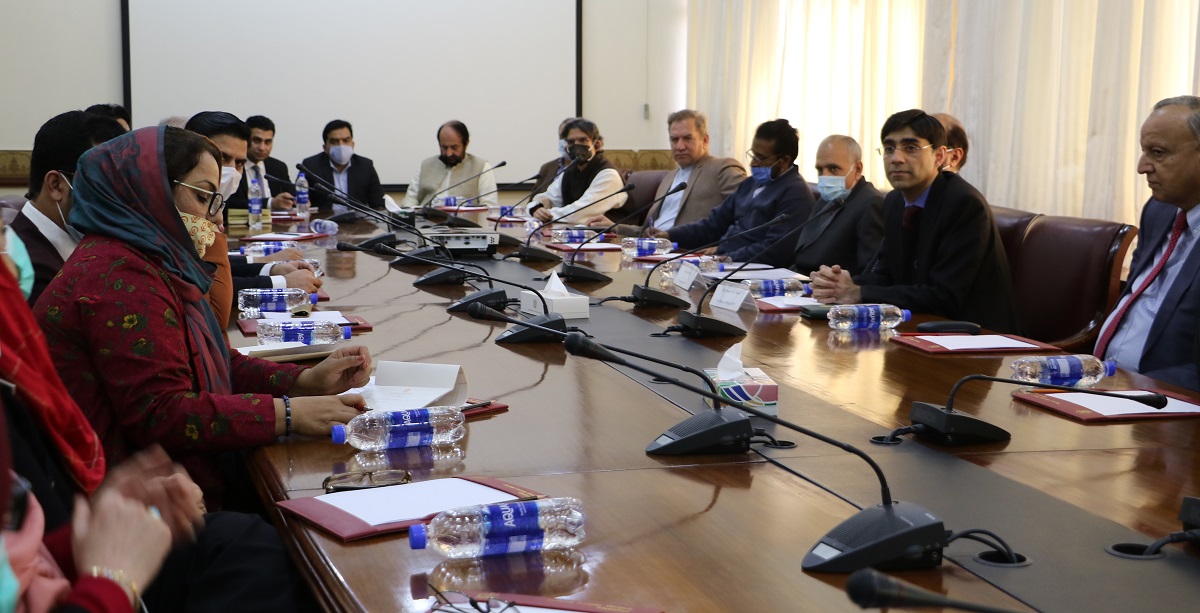
On Pakistan’s role in Afghan peace process, the SAPM stated that Islamabad supports an Afghan led and Afghan owned peace process. Whatever governance set-up that may emerge post intra-Afghan dialogues, it will have Islamabad’s support. Dr. Moeed Yusuf said that Pakistan’s leverage with the Afghan Taliban remains a recurring theme in bilateral as well as multilateral conversations. Pakistan has done whatever it can, but the world should not have unrealistic expectations from Pakistan. He also underscored the fact that Pakistan has no favorites at all in Afghanistan and dismissed the notion of Pakistan’s hegemonic intentions vis-à-vis Afghanistan. Dr. Yusuf reiterated that Afghanistan is an independent country and can have relations with India as it pleases but there can be no compromise if India uses the Afghan soil for terrorism in Pakistan. He said that the ball is in the court of Afghans and they should take the steering wheel from now on. At the end of the session, Dr. Yusuf thanked the PAJC participants for visiting his office and urged them to assist both governments by presenting tangible solutions for bilateral challenges.
